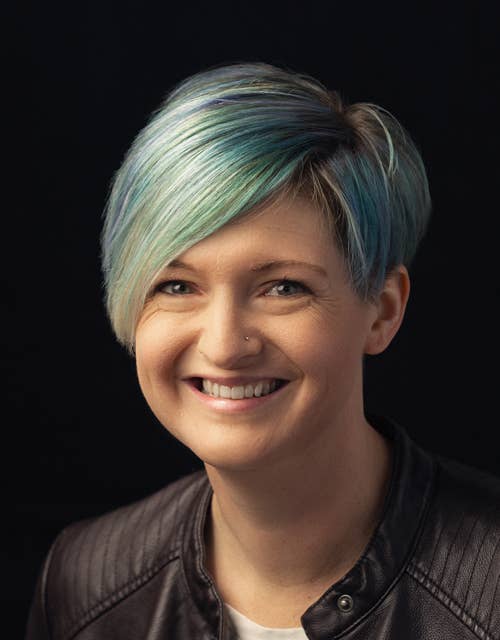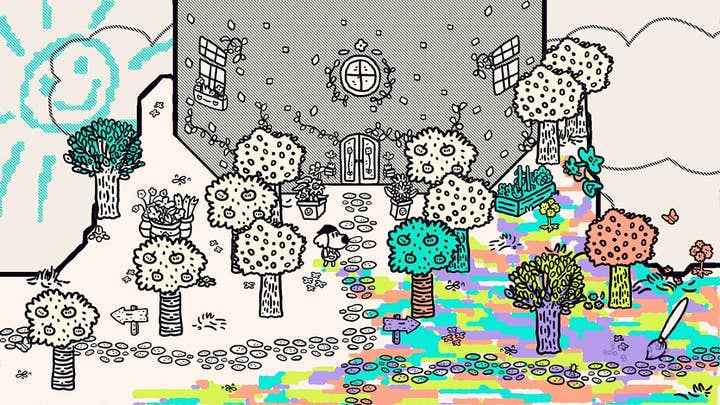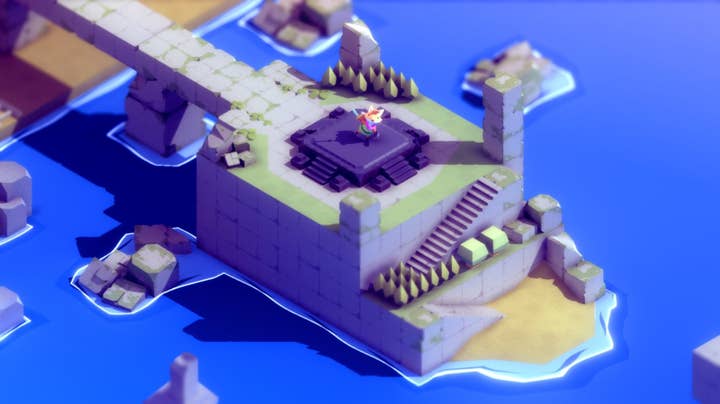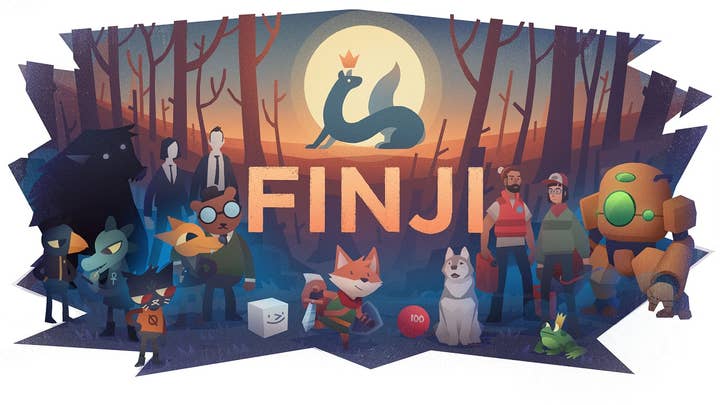Finji's goal: Be less scrappy
Rebekah and Adam Saltsman talk about the growth of the company and the changing indie publishing landscape
It's not unusual for a successful independent game developer to branch out into publishing, but few are as successful -- if not more so -- in this second endeavor.
Finji is a notable exception. The company's own games include titles like Cannabalt and Overland, while the games it has helped others with include Night in the Woods and Wilmot's Warehouse.
This year could see the balance of Finji's success as developer and publisher tip more toward the latter, as its lineup consists of three anticipated games from other developers: Chicory: A Colorful Tale, I Was a Teenage Exocolonist, and Tunic.

Speaking with GamesIndustry.biz recently, Finji co-founders Rebekah and Adam Saltsman describe the publishing part of the business as more of an organic evolution than a deliberate strategy. Initially they were just helping developers get their games on the App Store or Steam, and it was a manageable process for the couple to handle on their own.
"Because we were already set up to run a company, we found it easy to take on these teams that were sort of collaborators that weren't running full companies, and make sure they could get their revenue share," Rebekah says.
Unfortunately, Finji brought the concept of "scope creep" with it when it moved into publishing, and now Rebekah says the publisher actually "embeds" itself in many of the project teams it works with.
"We are tech mentorship or design mentorship," she says. "We kind of take over the biz dev part of the team, but we leave all the decision making in the hands of our teams. It's my job to source partnerships, or initiatives, or whatever, but it's not my job to tell them exactly what to do."

Adam says Finji will lay out options for developers and let them choose which path they think they can handle and would benefit their games, from launch management to promotions and marketing. While the company started with just Rebekah and Adam, they now have two QA staff, a community manager, a launch manager, and a biz dev assistant, not to mention external PR and marketing professionals they hire to help get the word out about games.
As much as the world of indie publishing has evolved, Rebekah says the added staff and complexity of the Finji operation shouldn't be taken as a sign of that evolution.

"I believe it required an operation even back in 2015," Rebekah says. "Just the two of us, we were doing as much as we could of all that work. And you could see how much actually needed to be done."
For example, Rebekah and Adam originally debated hiring on a full-time community manager because they thought it was a half-time job. But then they realized it was a half-time job to do the community management they had been doing in addition to their other duties, and they'd been getting by with no real management of influencer relationships, no Discord server, or other things larger publishing operations might have considered standard.
"It was a whole job we had kind of just been ignoring because it wasn't on fire," Rebekah says. "And we didn't have anyone to do it, so we were ignoring it. That's how it grew. It was a need, but we just didn't identify it as super-important at that point."
Adam likens some of these functions to making tamales; it makes more sense to make them in bulk. Once a publisher has gone to the trouble of building and managing something like streamer relationships for one title, it's much less trouble to us it again on a second title, a third, and so on.
"One of our goals is to rely less on chance and lightning strikes"
Adam Saltsman
And while it's certainly possible for a game to succeed without a publishing operation like that behind it, the entire point of a publishing business is to tilt the odds in the developer's favor.
"One of our goals is to rely less on chance and lightning strikes," Adam says, "and look for places where if we do put in extra work, we'll be relying on luck less and less over time. Because we'd like to be able to provide salaries and health care and so on for all the different teams we work with and the staff we have internally.
"Doing those things and depending on 'Well I hope that one streamer plays it seven times...' Something about that freaks me out for sure."
Beyond boosting the odds for their development partners, Rebekah and Adam say the publishing business also pays dividends for their internally developed games.
"Storefront relationships, press relationships, PR relationships... All those things get to stay active and engaged and keep that engine running," Adam says. "Then when it comes time for us to self-publish again, we get all the benefits of not just being able to launch into this cool catalog, but also being able to launch with the publishing machinery up and running."

Rebekah adds, "One sentiment we've said multiple times over the past two years especially is, 'How can we be less scrappy?' There are places where we should be scrappy, and places where we should be putting our people and resources to be less scrappy, because we can control for the most things. We can build a community and a dedicated fanbase and a corner of the internet where it's cool to talk about things. And that's worth us being less scrappy in other ways."
The indie publishing scene has witnessed an explosion of new players in recent years, but the added competition doesn't seem to be changing anything for Finji.
"Our bandwidth is so small we just don't take on a lot of games," Rebekah says. "And that's always been the case, because we are a developer first and a publisher second. The more teams I see having the best launch possible for them, and in the best environment, it's a win for the industry."
Adam likewise welcomes these entrants into the field.
"In the entire history of the games industry, publishing was a place where you could use gatekeeping to squeeze creative workers and collect some of their money that you didn't really earn," Adam says. "That's a thing that's been around for 40 years. It's still around, and I'm sure on some level it's a motivation for some new publishing ops.
"But I really like being in an ecosystem where there's an Annapurna, and a Devolver, and a Finji, and you can have people who first and foremost love these games, and have a background getting these games out to audiences."

